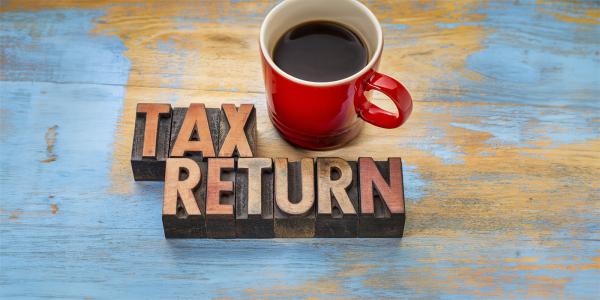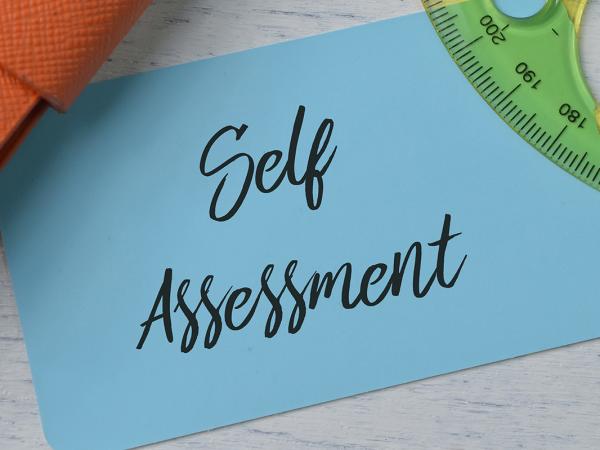Who has to complete a tax return
If you meet HMRC’s self assessment criteria, you will generally need to file a tax return. It is also important to understand your legal obligations relating to self assessment to avoid penalties and interest.

Content on this page:
Legal requirements
There are two distinct legal requirements which may apply:
- In some cases, you may need to notify HMRC that you owe tax for a year.
- If HMRC ask you to file a tax return, then you must do so unless HMRC cancel the requirement.
If all of your income is taxed under pay as you earn (PAYE), you have no chargeable gains and you are not liable to certain tax charges (such as the high income child benefit charge) then you should not need to notify HMRC of any liability. This applies to most people in the UK.
Otherwise, if HMRC have not already asked you to file a tax return for a year, you must usually notify HMRC if you owe tax (this can include income tax, capital gains tax, class 2 and 4 National Insurance contributions) for that year. This may apply to you, for example, if you started self-employment in a tax year.
When you notify HMRC that you owe tax for a year, they may ask you to complete a tax return for that year so you can report and pay that tax. This process is usually referred to as registering for self assessment.
HMRC’s self assessment criteria
HMRC have a set of criteria which sets out the taxpayers they wish to complete a self assessment tax return.
If you fall within HMRC’s criteria and HMRC have not asked you to file a tax return, then you should usually register for self assessment. If you do not, you may be charged a failure to notify penalty.
If you fall within the criteria but don’t owe any tax, see our information under the below heading If you have no tax to pay.
If you fall outside the criteria but HMRC have asked you to file a tax return for a year, you can ask HMRC to cancel the filing requirement. If HMRC don’t cancel the filing requirement you must complete and submit a tax return. If you don’t file a return on time, you may be charged a late filing penalty.
GOV.UK has a tool which asks you questions and, based on your answers, tells you if you fall within the criteria. You should keep a copy of your answers and the result the tool gives you.
Common situations falling within the criteria are:
- you are self-employed (unless this income is within the annual £1,000 trading allowance)
- you are a partner in a business
- you are a company director and have income on which tax is due that is not taxed under PAYE
- you have property income – for example, you are renting out a room, a garage or a whole property to someone else (unless this income qualifies for rent-a-room relief or is within the annual £1,000 property allowance)
- you want to claim tax relief on employment expenses over £2,500 in a year
- you have untaxed income (HMRC might be able to collect any tax due on small amounts without you doing a full tax return, but you should always tell them about savings income of more than your personal savings allowance and dividends of more than the dividend allowance)
- you have capital gains tax to pay which hasn’t already been paid in-year
- you are a minister of religion – any faith or denomination
- you are a trustee or the executor of an estate
- you receive regular annual income from a trust or settlement, or you receive income from the estate of a deceased person and further tax is due
- you have foreign income on which UK tax is due (there is a specific exclusion if your foreign income consists solely of dividends which will be covered by the dividend allowance)
- you need to make a claim for relief under a double tax agreement, or a claim for the remittance basis (where it does not apply automatically)
- you are non-resident and you have taxable income in the UK
- you have income from taxable savings and investments of £10,000 or more before tax
- you have total taxable income of £150,000 or more before tax (up to 2022/23, this threshold was £100,000).
- you or your partner receive child benefit and your adjusted net income is over £50,000 (or over £60,000, for 2024/25 onwards)
- you are liable to certain other tax charges, such as on ‘excess’ gift aid contributions or pension contributions
- you are liable to tax on a state pension lump sum which you deferred from before 6 April 2016
- you have tax due at the end of the year that cannot be collected via your PAYE coding notice in a later year
The above is not an exhaustive list. HMRC may also want you to complete a self assessment tax return for other reasons. For example, in some cases this will be as a mechanism to collect unpaid tax.
Remember, if HMRC have asked you to file a tax return, you will be charged penalties if you do not submit one by the deadline – even if the tool suggests that you do not ‘need’ to file a tax return. In this situation, you can ask HMRC to cancel the filing requirement.
If HMRC agree to cancel the filing requirement the late filing penalties will be cancelled automatically. It is important to do this before filing the return, because after you have submitted a return, HMRC cannot cancel the late filing penalties in the same way and you must appeal against them instead.
Selling a property
If you are a UK resident, you sell a UK residential property and you have capital gains tax to pay on that disposal, you usually have to tell HMRC and pay the tax within 60 days. You must do this on a separate return, usually by setting up a ‘Capital Gains Tax on UK Property’ account. If you have to complete a self assessment tax return then you will need to include the property sale on this tax return too. You can read more about this in our Capital gains tax reporting section.
Similar rules apply to non-residents selling any UK land or property, even if there is no tax to pay.
If you have no tax to pay
In certain situations, you may fall within HMRC’s self assessment criteria but you have no tax (or other) liability to be settled via self assessment.
For example, you may have gross trading income of £5,000 (with no expenses) in 2023/24 and no other income or gains in a tax year. Although your trading income would exceed the trading allowance, there would be no tax or National Insurance due on this income because it does not exceed the relevant thresholds for tax and NIC.
HMRC have not asked you to file a tax return for the year
If you have not been asked to file a tax return for this year and you do not owe anything to HMRC, then arguably there is no legal requirement to register for self assessment or otherwise to notify HMRC of your liability to tax. This is because no liability exists. Also, there can be no penalty for a failure to make that notification, because the penalty would be a percentage of the amount owed.
However, it is usually sensible to register for self assessment if you do fall within HMRC’s criteria, particularly if you are self-employed. There are a number of reasons why you might wish to complete a return even if you have no tax or National Insurance liability, including:
- to pay class 2 National Insurance contributions
- to demonstrate your trading profits to HMRC so that you are treated as having paid class 2 National Insurance contributions
- to claim a capital loss or a trading loss
- to have evidence of your income or trading status, which may be required for finance applications, such as a mortgage, business loan or student finance assessment
- to give HMRC visibility over your tax affairs in case you have made an error (for example, if you are self-employed and have deducted expenses from your income which HMRC later say are not tax allowable expenses)
HMRC have asked you to file a tax return for the year
If HMRC have asked you to complete a return, you will usually still need to complete one if you meet HMRC’s self assessment criteria – even if you have no tax or National Insurance liability. HMRC are unlikely to agree to cancel the filing requirement in this situation.



